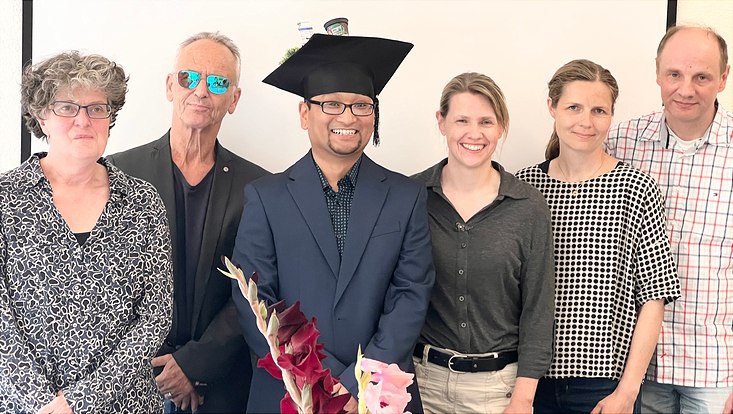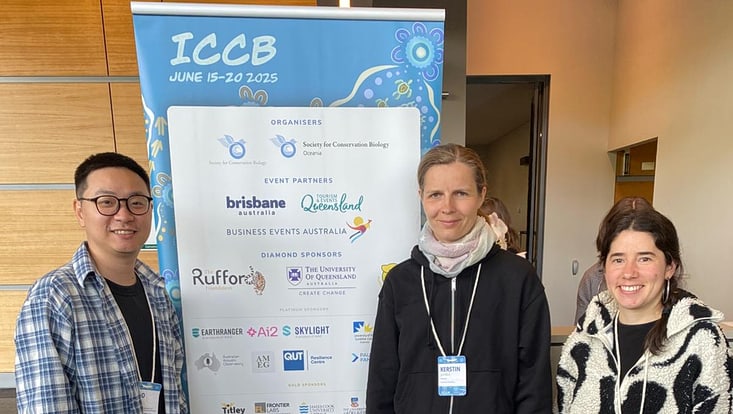Amit Basukala successfully defended his dissertation
18 July 2024

Photo: Amit Basukala
Congratulations to Amit Basukala who successfully defended his dissertation on 18th of July! The dissertation, entitled "Towards sustainable agricultural land use in Nepal under climate change: The role of efficient irrigation and fertilizer application," was supervised by Dr. Livia Rasche at the University of Hohenheim and Prof. Dr. Annette Eschenbach at the Universität Hamburg.
In his research, he identified challenges and opportunities for Nepal's agriculture sector and proposed solutions to improve crop yields under current and future conditions using physical process-based biophysical crop modelling. His findings indicated that efficient use of fertilizers and water is crucial for closing yield gaps and achieving food self-sufficiency in Nepal. He also suggested that expanding irrigated areas and enhancing canal conveyance efficiency could significantly boost crop productivity and water availability. Additionally, he found that adopting adaptive practices, such as alternate wetting and drying for rice cultivation, could improve yields, reduce water usage, and lower methane emissions, promoting sustainable agriculture in southern Nepal. These insights provide valuable guidance for policymakers aiming to enhance food security and agricultural sustainability in Nepal and similar regions.
Amit Basukala is affiliated with the Research Unit Sustainability and Climate Risks (FNK) at Universität Hamburg. FNK emphasizes interdisciplinary research and education on human-induced environmental changes, both global and regional. Its objectives are to identify sustainable development options, considering environmental quality, economic efficiency, and social equity, while addressing climate change impacts and risks. Given these focus areas, FNK is an optimal setting for his research.
Regarding his future plans, he would like to pursue a career focused on the sustainable intensification of agriculture, with the aim of improving food security. He aims to integrate cutting-edge research with practical solutions, aspiring to make a contribution to sustainable global food systems.


